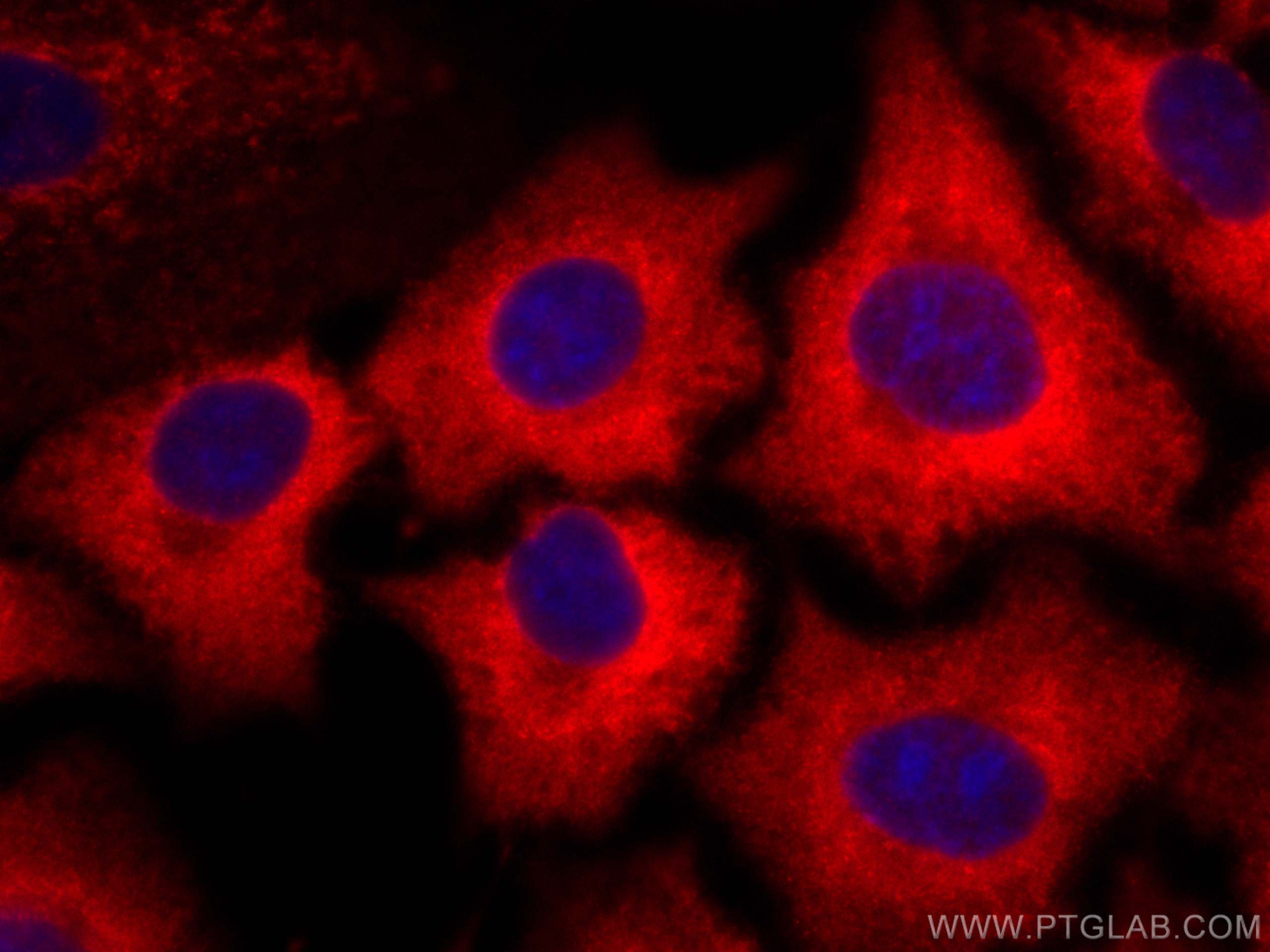Anticorps Monoclonal anti-ACLY
ACLY Monoclonal Antibody for IF
Hôte / Isotype
Mouse / IgM
Réactivité testée
Humain, rat, souris
Applications
IF
Conjugaison
CoraLite®594 Fluorescent Dye
CloneNo.
1E10D5
N° de cat : CL594-67166
Synonymes
Galerie de données de validation
Applications testées
| Résultats positifs en IF | cellules A549, |
Dilution recommandée
| Application | Dilution |
|---|---|
| Immunofluorescence (IF) | IF : 1:50-1:500 |
| It is recommended that this reagent should be titrated in each testing system to obtain optimal results. | |
| Sample-dependent, check data in validation data gallery | |
Informations sur le produit
CL594-67166 cible ACLY dans les applications de IF et montre une réactivité avec des échantillons Humain, rat, souris
| Réactivité | Humain, rat, souris |
| Hôte / Isotype | Mouse / IgM |
| Clonalité | Monoclonal |
| Type | Anticorps |
| Immunogène | ACLY Protéine recombinante Ag7709 |
| Nom complet | ATP citrate lyase |
| Masse moléculaire calculée | 121 kDa |
| Poids moléculaire observé | 120 kDa |
| Numéro d’acquisition GenBank | BC006195 |
| Symbole du gène | ACLY |
| Identification du gène (NCBI) | 47 |
| Conjugaison | CoraLite®594 Fluorescent Dye |
| Excitation/Emission maxima wavelengths | 588 nm / 604 nm |
| Forme | Liquide |
| Méthode de purification | Précipitation de l'acide caprylique/du sulfate d'ammonium |
| Tampon de stockage | PBS avec glycérol à 50 %, Proclin300 à 0,05 % et BSA à 0,5 %, pH 7,3. |
| Conditions de stockage | Stocker à -20 °C. Éviter toute exposition à la lumière. Stable pendant un an après l'expédition. L'aliquotage n'est pas nécessaire pour le stockage à -20oC Les 20ul contiennent 0,1% de BSA. |
Informations générales
ACLY(ATP-citrate synthase) is also named as ACL. It is the primary enzyme responsible for the synthesis of cytosolic acetyl-CoA. ACLY serves as not only a target in oxygenated cells for suppression of lipid synthesis and histone acetylation, but also as a susceptible target in hypoxic cells to restore inhibition of glycolysis. In nonsmall cell lung carcinoma and hepatocellular carcinoma, ACLY is overexpressed compared with normal parenchyma suggesting that ACLY may represent a common target among highly malignant tumors(PMID:19795461). This protein has 2 isoforms produced by alternative splicing.
Protocole
| Product Specific Protocols | |
|---|---|
| IF protocol for CL594 ACLY antibody CL594-67166 | Download protocol |
| Standard Protocols | |
|---|---|
| Click here to view our Standard Protocols |


